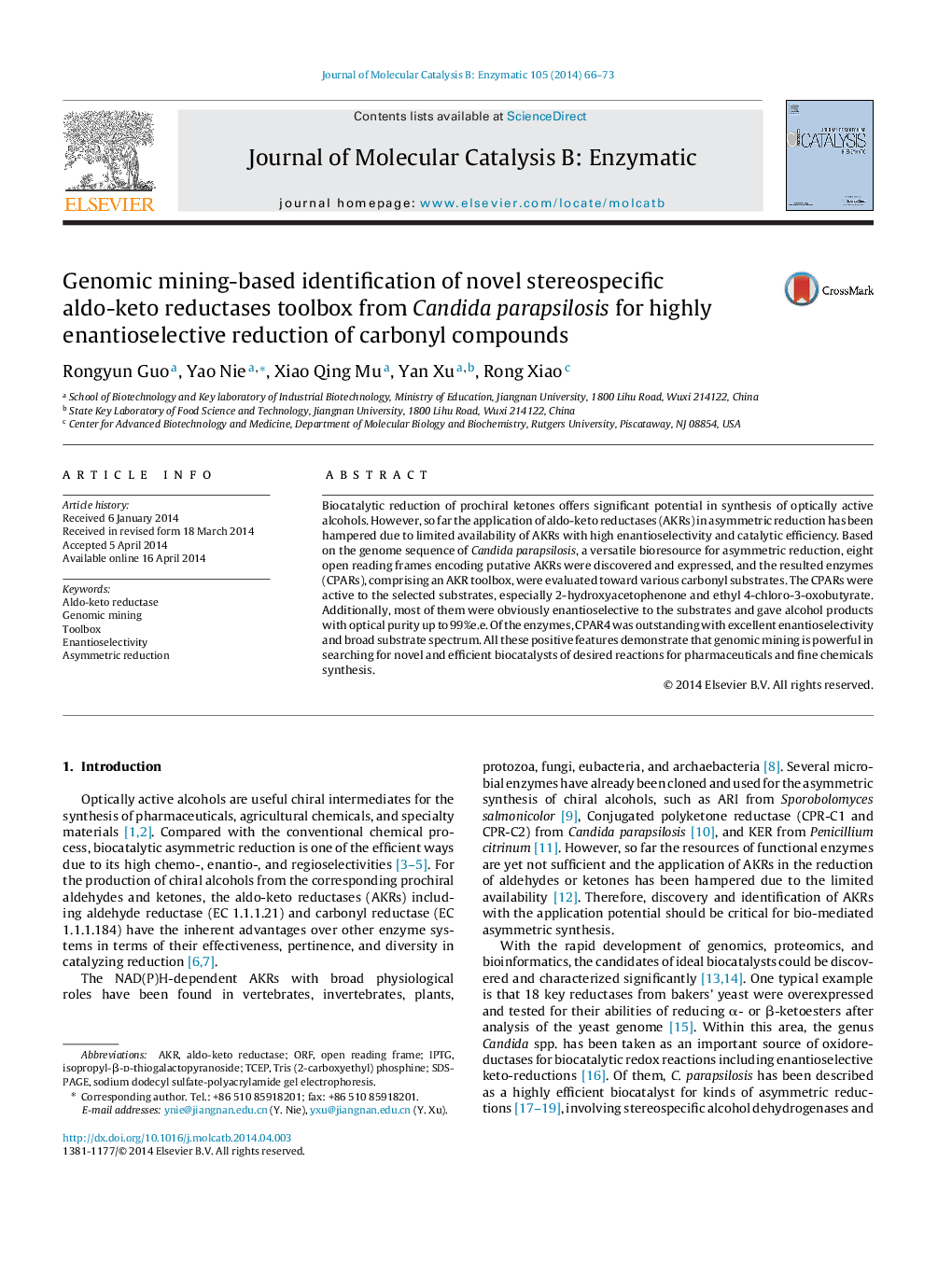| Article ID | Journal | Published Year | Pages | File Type |
|---|---|---|---|---|
| 69832 | Journal of Molecular Catalysis B: Enzymatic | 2014 | 8 Pages |
•Aldo-keto reductase (AKR) toolbox was identified from Candida parapsilosis genome.•The new AKRs were active to various carbonyl compounds with high enantioselectivity.•An enzyme was gained with excellent enantioselectivity and broad substrate spectrum.•Genomic mining is powerful to develop novel AKRs for fine biochemical synthesis.
Biocatalytic reduction of prochiral ketones offers significant potential in synthesis of optically active alcohols. However, so far the application of aldo-keto reductases (AKRs) in asymmetric reduction has been hampered due to limited availability of AKRs with high enantioselectivity and catalytic efficiency. Based on the genome sequence of Candida parapsilosis, a versatile bioresource for asymmetric reduction, eight open reading frames encoding putative AKRs were discovered and expressed, and the resulted enzymes (CPARs), comprising an AKR toolbox, were evaluated toward various carbonyl substrates. The CPARs were active to the selected substrates, especially 2-hydroxyacetophenone and ethyl 4-chloro-3-oxobutyrate. Additionally, most of them were obviously enantioselective to the substrates and gave alcohol products with optical purity up to 99%e.e. Of the enzymes, CPAR4 was outstanding with excellent enantioselectivity and broad substrate spectrum. All these positive features demonstrate that genomic mining is powerful in searching for novel and efficient biocatalysts of desired reactions for pharmaceuticals and fine chemicals synthesis.
Graphical abstractFigure optionsDownload full-size imageDownload as PowerPoint slide
